Not simply satisfied with setting British Gas up for its medium-term future by implementing and actioning a robust sustainability plan, including full transition to electric across its near-11,000 cars and vans by 2025, head of fleet Steve Winter is also working on a succession plan to ensure a smooth transition to the next incumbent.
Fleet is undergoing its biggest transformation in a generation, perhaps ever: electric vehicles, mobility, legislation, data and technology are all impacting on the job, adding pressure but also making it a stimulating place to work.
The skills required of tomorrow’s fleet manager need to evolve to meet the challenge and Winter, while confident about his own succession planning, questions where the new breed of decision-makers is coming from.
“The fleet industry is full of massive change with unprecedented levels of complexity and change over the past two or three years; the role is developing into something else,” he says. “It’s almost too big for one fleet manager; it needs to be supplemented by a number of key people to support that person.”
Of his own approach, he says: “[Former British Gas fleet manager] Colin Marriott brought me in to be his successor and, for a few years, I was learning the role under him. That was hugely beneficial and was the first thing I thought of when I took the job. More people need to think about these things. This is a stressful job so to have someone that can help you, share the burden and give insight is important.”
During his seven years at British Gas, Winter has become accustomed to change. Under parent Centrica, the fleet team has at various times reported into finance, procurement, supply chain and operations. Ultimately, though, the core objective has broadly stayed the same: to deliver an efficient and effective fleet to end users.
“We’re now in a group procurement function that looks after a global fleet, but there’s no right answer about where it should sit,” he says. “We still get involved in each part of the business, such as resourcing, supply chain or procurement - it’s a holistic approach. But having these different reporting lines has given me more insight and a broader knowledge of how Centrica works and how the fleet affects each part of the business – operationally, supply chain and procurement.”
Not simply satisfied with setting British Gas up for its medium-term future by implementing and actioning a robust sustainability plan, including full transition to electric across its near-11,000 cars and vans by 2025, head of fleet Steve Winter is also working on a succession plan to ensure a smooth transition to the next incumbent.
Fleet is undergoing its biggest transformation in a generation, perhaps ever: electric vehicles, mobility, legislation, data and technology are all impacting on the job, adding pressure but also making it a stimulating place to work.
The skills required of tomorrow’s fleet manager need to evolve to meet the challenge and Winter, while confident about his own succession planning, questions where the new breed of decision-makers is coming from.
“The fleet industry is full of massive change with unprecedented levels of complexity and change over the past two or three years; the role is developing into something else,” he says. “It’s almost too big for one fleet manager; it needs to be supplemented by a number of key people to support that person.”
Of his own approach, he says: “[Former British Gas fleet manager] Colin Marriott brought me in to be his successor and, for a few years, I was learning the role under him. That was hugely beneficial and was the first thing I thought of when I took the job. More people need to think about these things. This is a stressful job so to have someone that can help you, share the burden and give insight is important.”
During his seven years at British Gas, Winter has become accustomed to change. Under parent Centrica, the fleet team has at various times reported into finance, procurement, supply chain and operations. Ultimately, though, the core objective has broadly stayed the same: to deliver an efficient and effective fleet to end users.
“We’re now in a group procurement function that looks after a global fleet, but there’s no right answer about where it should sit,” he says. “We still get involved in each part of the business, such as resourcing, supply chain or procurement - it’s a holistic approach. But having these different reporting lines has given me more insight and a broader knowledge of how Centrica works and how the fleet affects each part of the business – operationally, supply chain and procurement.”
The processes required to meet the core objectives are shifting, with variations emerging between the company car and van elements of the business.
“Commercial vehicles are what you use to make your business money; the strong drivers are having the best, most efficient vehicles Won a TCO [total cost of ownership] model, but we don’t give the drivers choice,” says Winter.
Wholelife cost
Conversely, cars are all about choice, and there are differences in the way British Gas procures and leases them, as well as its replacement cycles and wholelife cost modelling, which makes it difficult to lump them in with commercial vehicles.
Consequently, Winter has split his team to have one person looking after cars and one on commercial vehicles, to ensure clarity of purpose on costings and procurement.
“We are doing a lot more consultative discussions with the drivers about the car choice, because there’s a minefield around the number of vehicles available and the legislation changes,” he adds.
“Then we look at the direction of the car fleet and the rules around the policy.”
The car profile on the fleet is shifting from the biggest, most expensive models to smaller, more efficient options as hybrid and home working result in less travelling. The choice list is helping to drive this while encouraging more employees back into the scheme: full electric and plug-in hybrid models are now the only cars available.
“Our car fleet has grown since the start of the year with people opting back in to take a low or zero CO2 car,” Winter says. “We will probably go EV-only at the beginning of next year or make PHEV a shorter lease of three years to coincide with our 2025 target and to make it a bit more expensive.
"PHEV is still a stepping-stone for many people – lots of our EV takers previously had a PHEV. They had to have a home charger installed so this approach has worked perfectly.”
Of the 270 cars currently on order, 61% are full electric and the rest PHEV.
British Gas has this month launched a salary sacrifice scheme and Winter anticipates strong demand as it offers the entire employee base access to new electric and PHEV cars. A home charger will be part of the lease package.
He also expects it to make a dent in the grey fleet. Employees using their own cars for business purposes are already tightly regulated, with restrictions on age, body type and EuroNCAP ratings, but Winter is considering introducing more rules to dissuade people from buying gas guzzlers, such as reimbursement rates or CO2 caps.
“We haven’t done anything this year, but we do think that our grey fleet will reduce as people choose salary sacrifice, so we will wait to see this impact before taking a decision,” he says.
While British Gas is swiftly electrifying its car fleet, the biggest volume to convert is vans. It ordered 1,000 Vivaro-e medium panel vans last year, with 900 delivered, and placed a further order for 2,000 earlier this year. By mid-2022, it will have 3,000 electric vans on fleet.
Vans on order
With a clear strategy, Winter describes the British Gas electric vehicle transition as “business as usual”; the vehicles are on order – although it has had to take some diesel large panel vans on short-term lease while it waits for electric alternatives to come to market – and the charging infrastructure is in place.
He’s now switched his attention to the next big project: a root and branch assessment of the entire fleet strategy, including reviewing the elements that are outsourced versus those managed in-house.
“We have board approval to look at our fleet strategy. We have contracts that almost collide so for the next six months or so, we will look at our model,” says Winter.
“When we outsourced our fleet management in 2006, it was the right thing to do. But things have moved on significantly in the digital age, so now it’s right for us to look at that – do we need to in-source or outsource more?
“We will look at the way we run our car scheme, our accident management, etc, and ask if it’s still fit for purpose for 2025 or 2030. We can see changes coming, for instance around vehicle maintenance. I don’t think I need to take a van off the road for a day to service it; I’m looking for a while-you-wait appointment that I can plan into an engineer’s diary, like I want to plan in a charging session to charge their van. I think we could downtime an engineer for an hour to have their van serviced.”
He is currently gaining insight by talking to suppliers and other fleets about their processes and plans to present his conclusions by the end of Quarter 1, with a launch midway through 2022.
The period of self-reflection doesn’t mean the company hasn’t benefited from its outsourced relationships – far from it. Innovation is built into supplier tenders and is measured during the life of the contract via regular reviews.
“During supplier reviews, we spend just five to 10 minutes looking at the KPIs and SLAs, then the focus is all about what’s coming next and how we work together,” says Winter.
“If you win one of our contracts, we don’t expect you just to deliver that for the three- or five-year term; we expect to see progression because that gives you the right to bid for the next contract.
“If you just deliver the same thing for three years, then we’ll benchmark or go to market to see if someone else can deliver a better service.”
Examples of innovation
British Gas can point to numerous examples of innovation. A recent example is its surplus vehicle fleet. It has moved the fleet into suppliers, such as accident management repairers and maintenance partners, spreading them around to ensure they are already in location when required.
“I don’t have to move them across the country any more; it reduces downtime for the engineer – it’s a ready-to-deploy fleet,” Winter says.
Then there’s the salvage parts policy with Synetiq. British Gas encourages its SMR partners to buy replacement parts from the company to drive efficiencies. It has become a key factor in getting vehicles back on the road quickly.
“Some suppliers are not good at innovation or creativity and some businesses don’t know how to ask for it,” Winter says. “But some of our responsibility is to help and nurture those creative ideas. Some of our best things have come from sitting and brainstorming what the future might look like.
“If it’s done regularly, there’s mutual understanding and benefit for the customer and the supplier.”
Learnings from EV pioneer
Total cost of ownership has always controlled the British Gas electric vehicle strategy.
“It’s not in our mindset of doing things at any cost and it’s taken a long time to get to where we are today with our maintenance profiles, accident profile and tyre wear,” says Steve Winter. “Now we have a product that is cheaper than ICE.”
The TCO model needs to include every element “otherwise it will cost you money”, including energy prices and the plug-in grants. Incident rates strengthened the financial case: efficient driving styles to conserve range are resulting in fewer crashes, with average repair costs falling by £30-£40. Maintenance spend and tyre spend is also lower.
Most British Gas drivers are using home charging, supplemented by occasional use of the public network. Winter is keen to explore the possibility of a fleet charging network, either with employers pooling their workplace facilities or through private suppliers creating timed appointments.
“Workplace charging is a high cost and a long return on investment, but if you open up to other fleets where we can book it and take revenue, it could supplement home and public. But it needs to be tied together especially as batteries increase in size, making home chargers insufficient,” he says.
Sponsor's comment:
Reflex Vehicle Hire is honoured to sponsor the Fleet News Awards and, in particular, the Fleet Manager of the Year Award, which celebrates the individual who has contributed to the successful running of their company’s fleet of vehicles.
This accolade highlights the key decision-maker who demonstrates their ability to control costs and is committed to creating a safe and efficient fleet, while also mitigating risks for their drivers and looking at sustainable mobility options for the future.
Congratulations to Steve Winter at British Gas for his commitment to electrifying their vehicles and looking at innovative ways of working to create a more efficient and sustainable fleet.
> Interested in comparing electric vehicle data? Check out our EV tool.
> Interested in ensuring the efficient use of EVs. Check out our dedicated editorial sections: Insight & policy | EV news | Charging & infrastructure | Costs & incentives | Benefit-in-kind | EV case studies | EV road tests
Login to continue reading.
This article is premium content. To view, please register for free or sign in to read it.

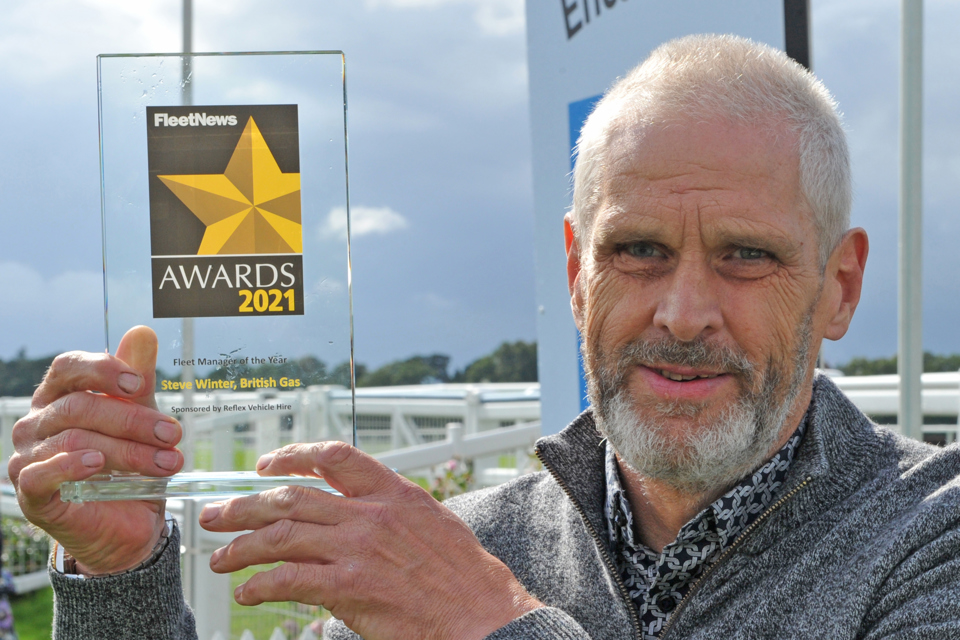



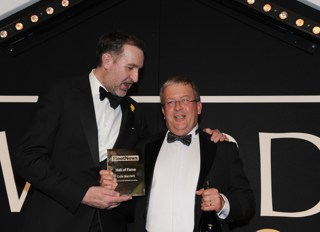

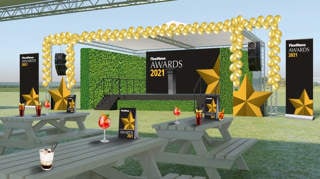
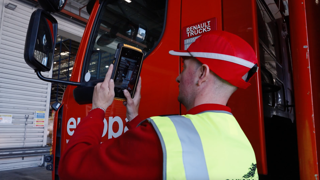
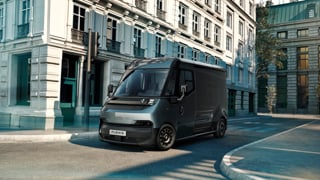












Login to comment
Comments
No comments have been made yet.